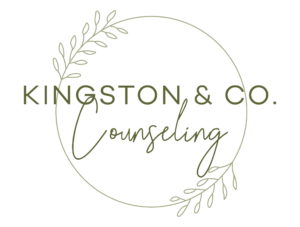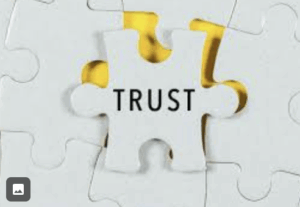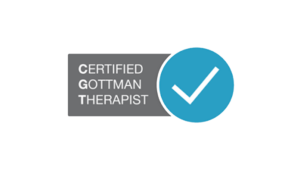Attention-Deficit/Hyperactivity Disorder (ADHD) is one of the most commonly misunderstood mental health conditions. Often dismissed as simply being “hyper” or “easily distracted,” ADHD is a complex neurodevelopmental disorder that affects both children and adults. It impacts attention, impulse control, and executive functioning, making daily tasks more challenging.
Whether you or a loved one has ADHD—or you’re just curious to learn more—this post will help you understand the condition, debunk common myths, and explore effective treatment options.
What Is ADHD?
ADHD is a brain-based disorder that affects a person’s ability to focus, regulate emotions, manage time, and control impulses. It is not just about being inattentive or energetic; rather, it involves differences in brain structure and function, particularly in areas responsible for attention and self-regulation.
There are three types of ADHD, based on the primary symptoms:
🔹 Inattentive Type (ADHD-PI)
People with this type struggle with focus, organization, and follow-through. They may:
✔️ Have difficulty paying attention to details
✔️ Forget tasks or lose things often
✔️ Get easily distracted
✔️ Struggle with time management
🔹 Hyperactive-Impulsive Type
This type is marked by excess energy and impulsivity. People with hyperactive ADHD may:
✔️ Fidget or have trouble sitting still
✔️ Interrupt others frequently
✔️ Act impulsively without thinking of consequences
✔️ Struggle with patience or waiting their turn
🔹 Combined Type
This is the most common form of ADHD, where a person experiences both inattentive and hyperactive symptoms.
🔗 Struggling with focus and organization? Our individual therapy services can help you develop tools to manage ADHD challenges.
Common Myths About ADHD
❌ Myth #1: ADHD Is Just a Childhood Disorder
✅ Fact: ADHD affects both children and adults. Many people go undiagnosed until adulthood, when they start recognizing persistent struggles with focus, time management, and emotional regulation.
❌ Myth #2: ADHD Means You Can’t Focus on Anything
✅ Fact: ADHD often involves hyperfocus, where a person becomes intensely focused on something they enjoy (like video games or a favorite hobby). The problem isn’t lack of focus—it’s difficulty regulating attention and shifting focus when needed.
❌ Myth #3: ADHD Is Just Laziness or Lack of Discipline
✅ Fact: ADHD is a neurological condition, not a behavioral choice. People with ADHD often work twice as hard to complete tasks due to executive functioning challenges.
❌ Myth #4: Medication Is the Only Solution
✅ Fact: While ADHD medication can be helpful, it’s not the only treatment. Therapy, coaching, lifestyle changes, and coping strategies can also make a big difference.
🔗 Want to learn more about ADHD treatment options? Explore our therapy services to find support.
How ADHD Affects Daily Life
ADHD isn’t just about attention—it affects many areas of life, including:
📌 Work & School
🔹 Difficulty finishing assignments or projects
🔹 Procrastination and trouble managing deadlines
🔹 Forgetting meetings or important details
📌 Relationships
🔹 Impulsively saying things without thinking
🔹 Forgetting plans or important dates
🔹 Struggling with emotional regulation
📌 Mental Health
🔹 Higher risk of anxiety and depression
🔹 Low self-esteem from years of struggling to meet expectations
🔹 Feeling overwhelmed by daily responsibilities
🔗 If ADHD is affecting your relationships, consider couples therapy to improve communication and understanding.
Managing ADHD: Strategies That Help
If you have ADHD (or think you might), small changes can make a big impact. Here are some effective strategies:
✅ 1. Use External Reminders
People with ADHD benefit from visual and auditory cues to stay on track.
✔️ Set phone alarms for important tasks
✔️ Use sticky notes or a planner
✔️ Try apps like Todoist or Notion for task management
✅ 2. Break Tasks into Smaller Steps
Big projects can feel overwhelming. Instead of trying to do everything at once:
✔️ Break tasks into smaller, manageable steps
✔️ Use the “5-Minute Rule”—start a task for just 5 minutes to get momentum going
✅ 3. Create an ADHD-Friendly Environment
✔️ Work in a clutter-free, distraction-free space
✔️ Use noise-canceling headphones or background music
✔️ Set up a dedicated “focus zone” for studying or working
✅ 4. Practice Time Management Techniques
✔️ Try the Pomodoro Technique (work for 25 minutes, then take a 5-minute break)
✔️ Plan the next day before going to bed
✔️ Use time blocking to schedule tasks
🔗 Need personalized support? Our individual therapy services can help you develop ADHD-friendly strategies tailored to your lifestyle.
Seeking Help for ADHD
If ADHD is impacting your daily life, relationships, or mental health, seeking professional support is a great step. Therapy can help with:
✔️ Improving focus and organization
✔️ Managing impulsivity and emotional regulation
✔️ Building confidence and self-acceptance
At Kingston & Co Counseling, we offer ADHD-friendly therapy to help you understand your brain, develop coping strategies, and thrive.
Ready to take control of your ADHD? Contact us today to schedule a session!
✨ ADHD is not a weakness—it’s a different way of thinking. With the right tools, you can unlock your full potential! ✨







